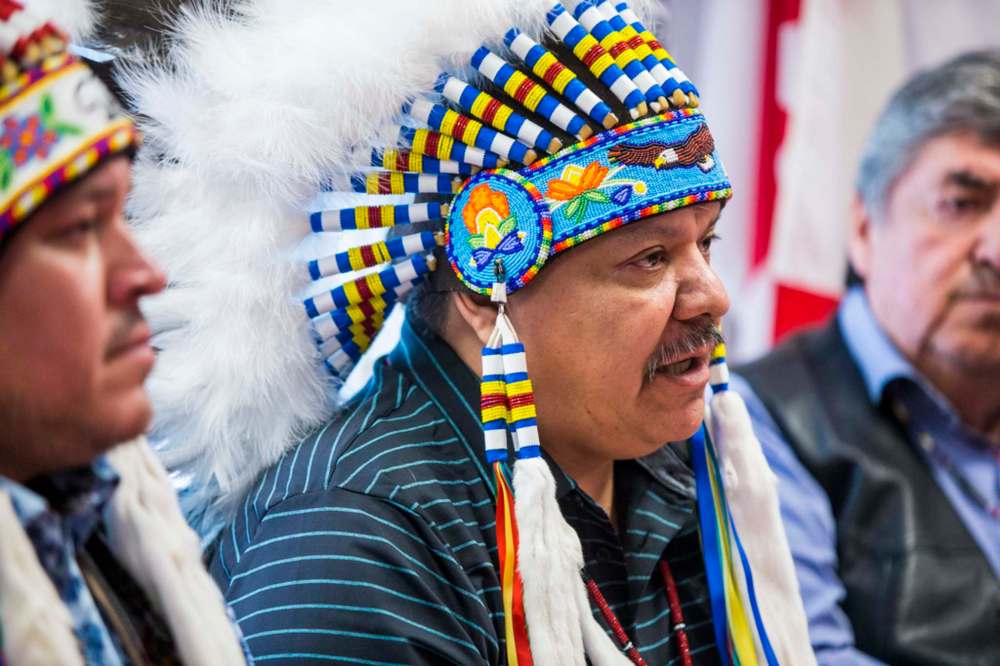Court hits pause on flood channel access road construction
Advertisement
Read this article for free:
or
Already have an account? Log in here »
To continue reading, please subscribe:
Monthly Digital Subscription
$0 for the first 4 weeks*
- Enjoy unlimited reading on winnipegfreepress.com
- Read the E-Edition, our digital replica newspaper
- Access News Break, our award-winning app
- Play interactive puzzles
*No charge for 4 weeks then price increases to the regular rate of $19.00 plus GST every four weeks. Offer available to new and qualified returning subscribers only. Cancel any time.
Monthly Digital Subscription
$4.75/week*
- Enjoy unlimited reading on winnipegfreepress.com
- Read the E-Edition, our digital replica newspaper
- Access News Break, our award-winning app
- Play interactive puzzles
*Billed as $19 plus GST every four weeks. Cancel any time.
To continue reading, please subscribe:
Add Free Press access to your Brandon Sun subscription for only an additional
$1 for the first 4 weeks*
*Your next subscription payment will increase by $1.00 and you will be charged $16.99 plus GST for four weeks. After four weeks, your payment will increase to $23.99 plus GST every four weeks.
Read unlimited articles for free today:
or
Already have an account? Log in here »
Hey there, time traveller!
This article was published 21/08/2020 (1931 days ago), so information in it may no longer be current.
OTTAWA — Premier Brian Pallister’s legacy flood channel project has hit yet another roadblock, with a court pausing the construction of an access road due to concerns about consultation with First Nations.
“It’s a good day for Indigenous people,” said Lake Manitoba Chief Cornell McLean, reacting Thursday to a ruling the same day in the Court of Queen’s Bench.
The Interlake Reserves Tribal Council has long complained about how the Lake St. Martin-Lake Manitoba flood channel outlets are being planned. The chiefs say the province isn’t adequately hearing out their concerns.

The $540-million project is meant to prevent catastrophic floods by diverting water between those bodies and Lake Winnipeg. Ottawa has agreed to pay almost half the cost, recognizing the channels as critical infrastructure to adapt to a changing climate.
Local reserves claim they were blindsided in March 2019 by the clearing of a 23-kilometre route, with a 25-metre right-of-way. The province said it had obtained all required approvals for the road, which it says it required to survey the site for engineering reviews, and wants to use this coming winter.
IRTC had previously tried unsuccessfully to get a provincial regulator to stop the building the road, alleging the province hasn’t meaningfully examined their concerns over the environment and treaty rights.
In April, the six First Nations filed a court injunction, which was granted Thursday.
The interlocutory injunction means the court wants to prevent further construction of the road, until it has enough evidence to weigh the concerns of IRTC chiefs.
The province is thus forbidden from clearing Crown land, unless a flooding emergency occurs and an existing, temporary channel needs to be reactivated.
The injunction will be in place until the court rules on whether the province has adequately heard out local concerns and tried to mitigate them, such as through a work plan, or if the project clears all existing regulatory reviews.
“When it comes to First Nations, we’re Manitobans as well,” McLean said. “The premier needs to treat us as such.”
The Pallister government says it’s reviewing the decision and strives to work with First Nations.
The Interlake area was severely flooded in 2011 and 2014. McLean stressed the First Nations support the idea of preventing floods, and the IRTC said it’s optimistic about finding a solution.
“We’re excited to work with the province,” said IRTC spokesman Karl Zadnik. “The pandemic has really put (us in) a difficult path, to ensure the consultation meetings take place.”
Thursday’s decision related to the access road; it does not decide the fate of the actual outlet channels.
An ongoing federal review has found gaps in the province’s assessment of how the outlets will impact invasive species, water flows far downstream and fish life.
dylan.robertson@freepress.mb.ca

